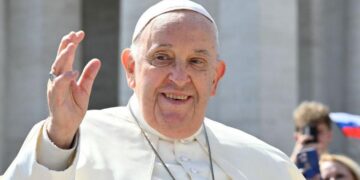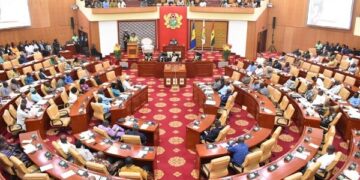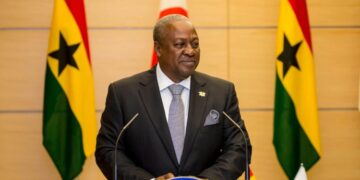The International Monetary Fund (IMF), is forecasting a GH¢1.54 trillion economy size for Ghana by the close of 2027.
Ghana, per the IMF projection, is expected to grow from a GHS 1 trillion economy size in 2024 to a GHS 1.21 trillion economy size in 2025; GHS 1.37 trillion size in 2026 and GHS 1.54 trillion size in 2027.
The projection by the Fund follows its conclusion of the 2023 Article IV Consultation on Ghana’s economy and also the approval of the $600m second tranche by the IMF under the 3-year ECF programme.
The expansion of the economy to GHS 1.54 trillion by 2027, the IMF notes, will come along with an increased tax-to-GDP ratio, increased foreign reserves and reduced debt-to-GDP ratio.
According to Bo Li, Deputy Managing Director of the IMF and Acting Chair of the IMF Executive Board, Ghana’s economic performance has been marked by significant volatility over the years. Most recently, severe external shocks compounded pre-existing fiscal and debt vulnerabilities, leading to acute economic and financial pressures in 2022.
He noted that the authorities’ efforts to reorient macroeconomic policies, restructure debt, and initiate wide-ranging reforms are already generating positive results, with growth more resilient than initially envisaged, inflation declining, the fiscal and external positions improving, and international reserves increasing.
“Fully and durably restoring macroeconomic stability and debt sustainability and fostering higher and more inclusive growth requires steadfast policy and reform implementation. The government’s plans to further reduce deficits by mobilizing additional domestic revenue and streamlining expenditure and finalising its comprehensive debt restructuring are critical to underpin debt sustainability and ease financing constraints.
“Continued efforts to protect the vulnerable and to create space for higher social and development spending are also key. Reforms to improve tax administration, strengthen expenditure control and management of arrears, enhance fiscal rules and institutions, and improve SOEs management are needed to ensure lasting adjustment.
“The authorities took decisive steps to rein in inflation and rebuild foreign reserve buffers. Maintaining an appropriately tight monetary stance and enhancing exchange rate flexibility are key to achieving the program’s objectives,” he quipped.
“Reforms to create an environment more conducive to private investment are needed to enhance the economy’s potential and underpin sustainable job creation. Given Ghana’s exposure to climate shocks, promoting a green recovery by further advancing the adaptation and mitigation agendas should also remain a priority,” he added.






















































































